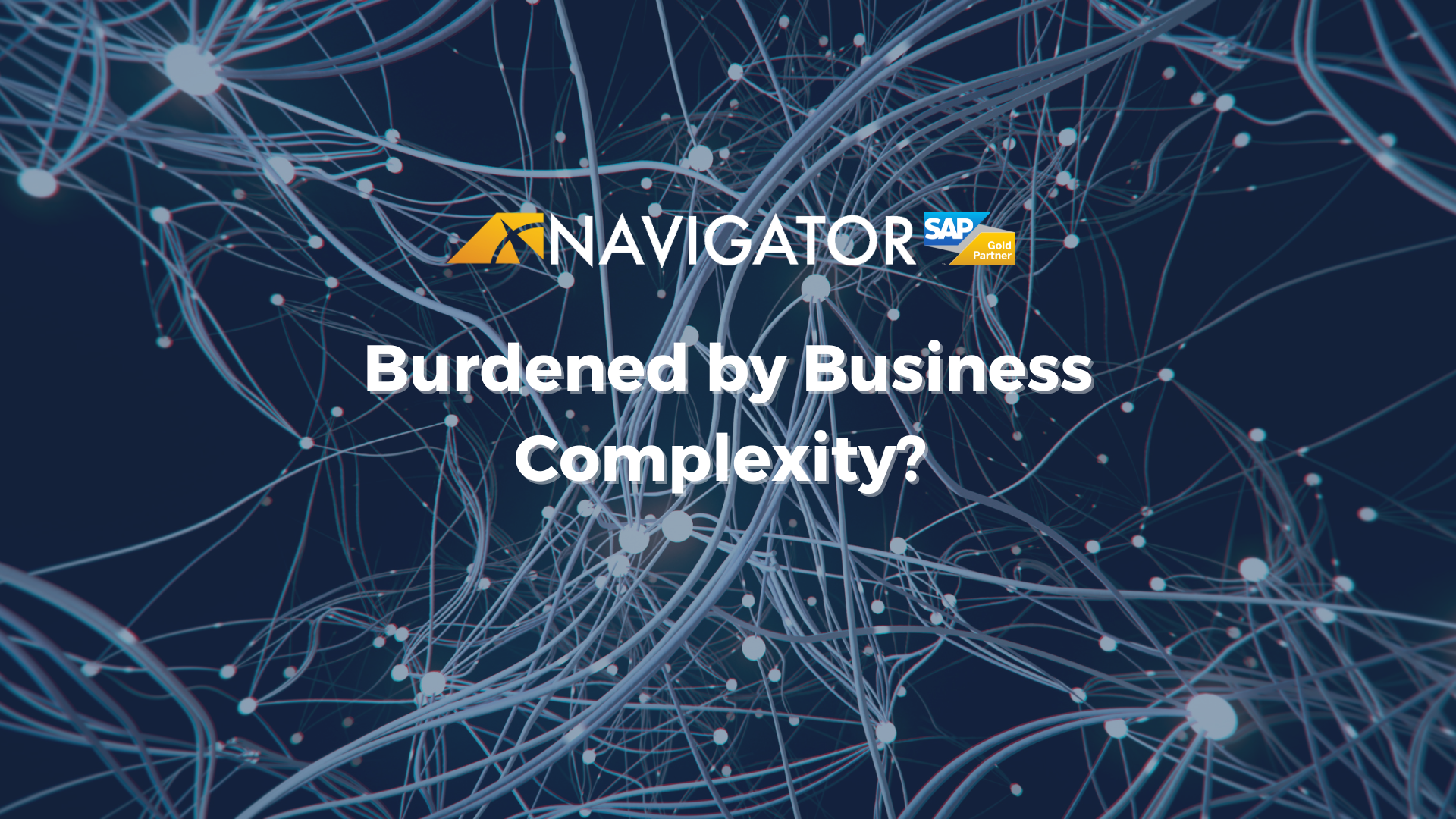
Burdened by Business Complexity & once simple systems?
Let me know if this story sounds familiar.
You’re a profitable business that has been running for several years, let’s say a maker of high-quality products in the health and wellness [INSERT YOUR BUSINESS HERE] category.
Sales are really taking off, and you have multiple sales channels that include retail stores, online stores, sales through e-commerce marketplaces such as Amazon, and the more traditional distribution and retail channels. You operate with multiple manufacturing and distribution/fulfillment centers in the United States, and you are expanding internationally.
You’ve scaled fairly quickly through acquisitions and strong internal organic growth, and the business is growing. But complexity is through the roof.
First, there’s supply chain complexity. You have a wide global supplier network but constant headaches from changing logistics, price fluctuations, stock shortages, and occasional issues with the quality of raw materials. Some days you wish it was a vertically integrated company so you don’t have to deal with these headaches.
Read Cangshan Cutlery's journey with SAP S/4HANA Cloud Public Edition
Next, there’s sales channel complexity. You know that your customers expect commerce everywhere “Commerce Anywhere and How ERP Helps”, but maintaining so many sales channels is a logistical nightmare. Each channel requires its own processes and data formats, and piecing them together for fulfillment and financial projections is a pain.
There’s operational complexity. Your business has manufacturing and procurement departments. It has warehousing and quality control. It has marketing, sales, fulfillment, and customer service. There’s product development, an overtaxed human resources department, and of course the financial team that is busy generating reports for investors as well as management. None of these departments talk together as well as they should.
Then there’s systems complexity. You have a hodgepodge of software solutions that keep operations flowing but just barely, both because these systems don’t work together easily and because they are starting to strain under the weight of increased order volume. Imagine what it would be like if all your systems came from one vendor or correctly talked with each other.
You’ve heard about enterprise resource planning solutions, and how they can help with this complexity. But everything you find online about ERP either is too complex and specific, almost intended for a developer, or it is too simplistic and general like an article written by ChatGPT. You don’t even know where to begin.
Cloud ERP Helps You Conquer Business Complexity
If this story sounds even vaguely familiar, it is time to consider SAP S/4HANA Cloud Public Edition and help from Navigator Business Solutions.
S/4HANA Cloud Public Edition is an ERP solution for fast-growing small and medium-sized businesses that streamlines operations across an organization by bringing all business functions under one roof and serving as a single source of truth for all of a company’s data.
With this unified system, a business gains full operational visibility and coordination, as well as end-to-end automation. S/4HANA Cloud Public Edition also lays the foundation for future growth, because the system can be configured for where your business is now but also where it will be later when it expands.
Managing supply chain logistics is made easier with S/4HANA because it can connect directly with supplier systems through electronic data interchange (EDI) or APIs for real-time visibility and automatic ordering. Automation within S/4HANA also can be selected among suppliers based on this data for better handling of quality variance or pricing changes.
The complexity of commerce everywhere also is reduced when a business uses S/4HANA. A business can connect marketing and inventory with its online store via S/4HANA, and it can integrate easily with Amazon and other online marketplaces. But businesses also can use SAP Customer Checkout for POS sales in a company’s brick-and-mortar store, and leverage the logistics and distribution functionality in the ERP solution for handling wholesale supplier orders even when each distributor has specific requirements around lot size and order formats.
Then of course there is the operational and systems benefits of using a unified ERP solution such as S/4HANA.
All parts of a business draw from the same centralized data with S/4HANA and work is performed from applications that share a unified interface and natively talk with each other. Where third-party systems and cloud services still are needed, S/4HANA offers a wide range of pre-built integrations and APIs for easily talking with these systems. The low-code SAP Build editor also can be used for creating custom connections, and all of these connections also can take advantage of S/4HANA’s system-wide automation.
Reducing Business Complexity Also Requires a Partner You Can Trust
Just as important as picking the right ERP solution is having the support you need when selecting, implementing, and maintaining an ERP system. ERP is complex, and it is important that a company matches its business processes to the system and has the support it needs to configure it properly. This is where we can help.
We’re a partner you can trust, one that will really take the time to understand your needs, strategic goals, and current business process, then blend this with our deep understanding of how SAP works; Navigator Business Solutions has an in-depth understanding of SAP S/4HANA Public Cloud Public Edition along with SAP technology stack options such as SAP Customer Checkout, SAP Supplier Portal, and SAP Digital Manufacturing Cloud.
So if your business is burdened by complexity, let’s talk shop. You can contact one of our experienced ERP consultants by calling us at (801) 642-0123 or by writing info@nbs-us.com.


